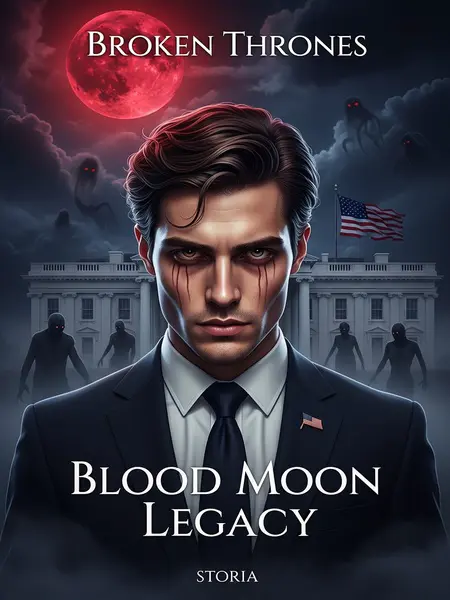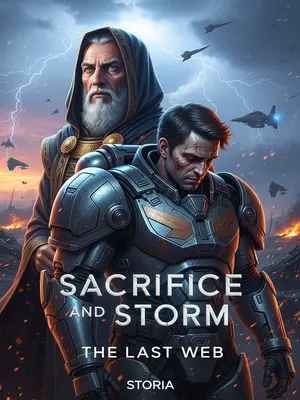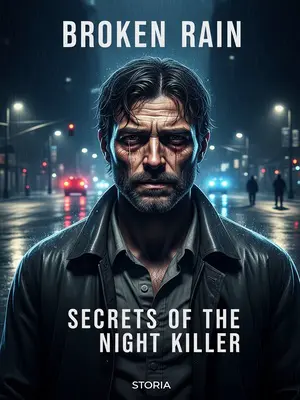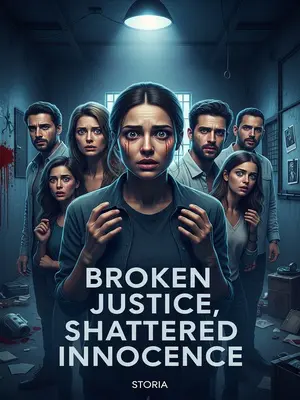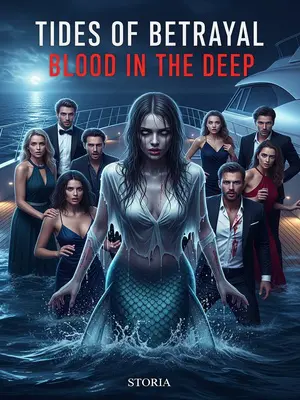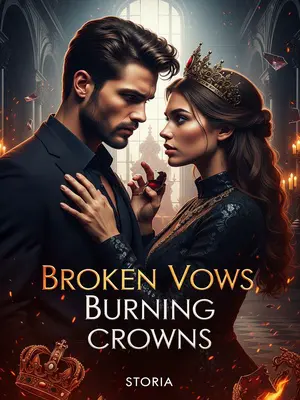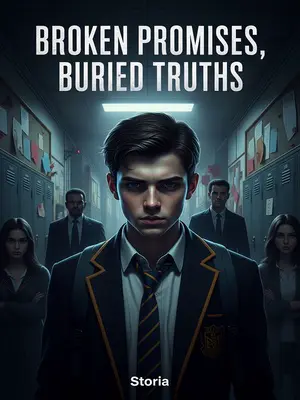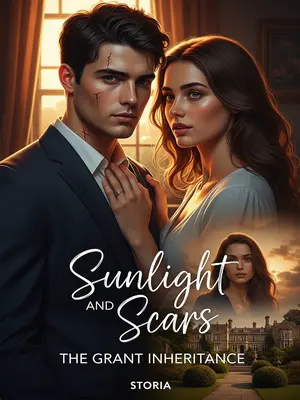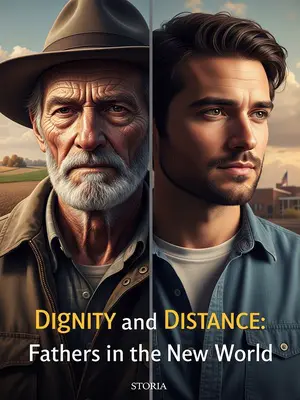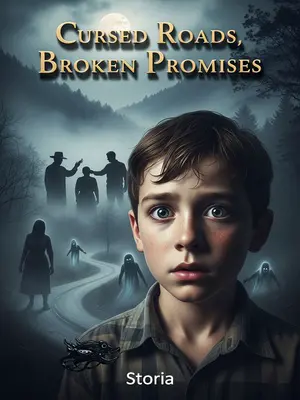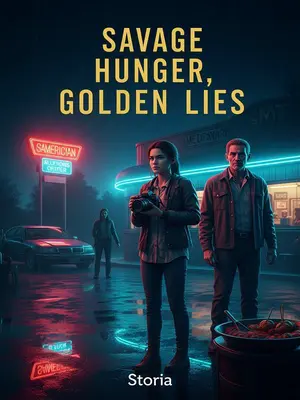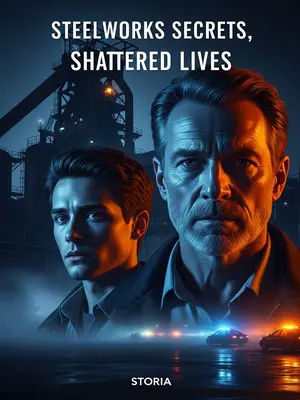Chapter 4: War Under a Blood Moon
Suddenly, the Three Johns appeared in my room, looking almost normal. John Shearer spoke first:
"Mr. President, this old advisor has been… too deeply affected, and has offended you. I beg forgiveness."
His voice was shaky, almost human. For the first time, I saw fear flicker in his eyes—even monsters have something to lose.
Before I could answer, John Shearer pressed on, "Mr. President, time is short. We can do little in haste. Here’s a report—please sign it."
He shoved the paper at me, his hands trembling. I realized this was my chance—a window that might never open again.
I knew this was it and signed right away. The Three Johns had a trusted aide send it out. The moment the eclipse ended, they snapped back to their monstrous forms.
The transformation was instant, horrifying. I watched as their bodies twisted and contorted, the last scraps of humanity melting away.
The next morning, the administration was in chaos; the report I’d signed during the eclipse was a declaration of war on the northern tribes. Six hundred thousand American troops marched out, the president leading from the front, every department working together. No one planned to come home until the threat was crushed.
The news flashed across every TV—anchors with tight smiles, generals in pressed uniforms, crowds waving flags. But under the surface, fear simmered, and I could see it in every glance sent my way.
From my chair, I could see the ugly faces of the ghosts below; even two generals looked ready to tear me apart. But in their eyes, I saw a last glimmer of humanity, holding them back. The room was silent.
The silence was thick as molasses, broken only by the old grandfather clock ticking in the corner. I wondered how long this fragile peace would last.
After the meeting, my mother rushed to my room, warning me again and again: "Be careful fighting the northern tribes. Your father wore himself out in that war."
Her hands shook as she handed me a cup of coffee, her eyes rimmed with red. I realized no matter how old I got, I’d always be her child, the one she worried over.
She pulled out a box, inside was a claw, longer than a man’s palm. My father brought it back from his last campaign; nobody knew what beast it came from. Mom thought it was tied to his death. Judging by its size, it was from something huge, something even American weapons couldn’t stop.
The claw was heavy, covered in strange markings. I turned it over, feeling the weight of history—and fate—in my hands.
Before I left, my mother gripped my hand and whispered a prayer: the sign showed only one chance in ten of survival. She sobbed, but I knew there was no turning back.
Her tears soaked my sleeve, her voice cracking on the old family prayer. I hugged her tight, promising I’d come home—even if we both knew I might not.
A white stallion carried me north, across endless plains. I’d heard that in winter, snow buried the mountains, cattle and sheep froze to death—a land of suffering. General Daniel Foster, who rode with me, said great-grandfather had wanted to conquer the north but lost his chance. All those campaigns drained the country’s strength, and it haunted President Carter until the day he died.
The journey north was a blur of cold wind and endless sky. The land felt ancient, untouched, like it belonged to another world. Foster’s words hung in the air, a reminder of how close we’d come before—and how far we still had to go.
This time, Foster brought over a thousand strange people and occultists. He said if my father had had their help, maybe the world would already be united. His eyes flickered with both killing intent and fear, as if the northern tribe had something truly terrifying.
The occultists kept to themselves, muttering rituals by candlelight. Even the soldiers avoided them, crossing themselves as they passed. I wondered what secrets they carried, and what price we’d pay for their help.
Foster said this battle would show what the northern tribes had become. He warned our 600,000 troops might take heavy losses.
His words weighed on me. I tried to act strong, but every time I looked at the soldiers behind me, I felt the weight of their lives pressing down.
The Three Johns sent me a velvet pouch by some mysterious means. A trusted aide said it might save my life or turn the tide when things got desperate.
The pouch was tiny, its contents a mystery. I tucked it into my coat, hoping I’d never need it, but knowing I probably would.
Even though morale was high, the generals who knew the truth were all worried. Once we left the old frontier, the vast plains made my skin crawl. Even before the fighting started, the wind smelled faintly of blood, and the grass whispered like the wails of ghosts.
The land itself seemed to resist us, every mile harder than the last. The soldiers joked and sang, but their laughter was sharp and brittle.
After dozens of miles, we saw piles of white bones—cattle, sheep, beasts, even people. Packs of wild animals attacked our camp without fear. Normally, an army this size would scare them off, but these charged with red eyes, unafraid of death, as if something was driving them.
The attacks came at night, their howls echoing through the darkness. I barely slept, my dreams haunted by teeth, claws, and blood on the snow.
We cut down beast after beast, but even when sliced in half, their heads still bit into American armor, refusing to let go. After dozens of such attacks, Foster pointed at the distant dust and said, "The northern tribe is coming!"
His voice was grim, but there was a spark of excitement in his eyes—a warrior’s thrill for the coming storm. I tried to match his courage, but my hands shook on the reins.
On the northern plains, the enemy cavalry surged like a tide. The American army stacked up shield walls, waiting for the charge. Our guns opened fire as soon as the enemy came close, turning the front ranks to mush. In seconds, the two armies collided, metal on metal ringing across the battlefield.
The fight was chaos—smoke, blood, the thunder of hooves. I shouted myself hoarse, trying to keep order as the world dissolved into violence.
Enemy cavalry fell in droves, and America paid a heavy price too. Foster stayed calm, commanding the battle. With our staggered defense, the enemy lost heavily, even their generals fell.
Foster never flinched. He moved among the troops, barking orders, rallying the wounded. I tried to follow his lead, but the slaughter was almost too much.
Foster said this was just the start; the real fight was coming. After the cavalry, the enemy would send infantry, and that’s when things would get brutal. Our guns and cannons wouldn’t matter—only hand-to-hand combat would decide the day.
The men gripped their bayonets, faces pale but determined. I saw fear in their eyes, but also a stubborn refusal to give up.
But the real key wasn’t the soldiers. The strange people and occultists began setting up ritual circles. For most troops, the circles didn’t matter, but Foster clearly feared something.
The occultists chanted in low voices, weaving patterns in the air. The soldiers watched, nervous, as strange lights danced over the ground.
Only then did Foster tell me: once the circles started, the occultists would die. The circles would last just fifteen minutes, giving American soldiers special powers. The occultists called it spirit possession—heavenly warriors would take over the troops for a while; they wouldn’t be invincible, but they wouldn’t feel pain.
The price of victory, it seemed, was always paid in blood. I wondered if the ghosts in the White House started out like this—sacrifices for the greater good, only to become monsters themselves.
The lead occultist smiled bitterly. Foster whispered that big rituals like this always cost lives. Heaven demands fairness; the soldiers’ power was bought with the occultists’ deaths.
The old man’s eyes were tired, but his voice was proud. Every generation had its martyrs.
Just as the ritual was about to finish, the army changed; some soldiers dropped dead for no reason. Looking closer, the fallen enemy turned into four-clawed monsters—giant frogs with spiked heads and huge claws. I recognized the claws—they matched the one my father had brought back.
The transformation was hideous—bones snapping, flesh twisting, uniforms tearing as monsters burst out. The soldiers screamed, but there was no time to help.
The monsters’ claws tore through American armor like paper. The Americans, who’d been winning, suddenly lost ground. Worst of all, dead American soldiers, if not ripped apart, would have monsters burst from their bellies. Dead monsters turned to pus, which ate through armor with a hiss. If it touched skin, it burned straight to the bone.
The battlefield became a slaughterhouse. Men I’d eaten breakfast with were gone in seconds, their screams echoing long after.
The American army panicked; the vanguard of 100,000 was wiped out in moments. As casualties mounted, the number of monsters stayed the same.
Despair spread like wildfire. Even the bravest men faltered, their courage crumbling in the face of the impossible.
Foster’s eyes were bloodshot. Only then did he tell me: in my father’s last battle, he faced these monsters too, but not so many. He kept it secret—if word got out, all of America would panic.
